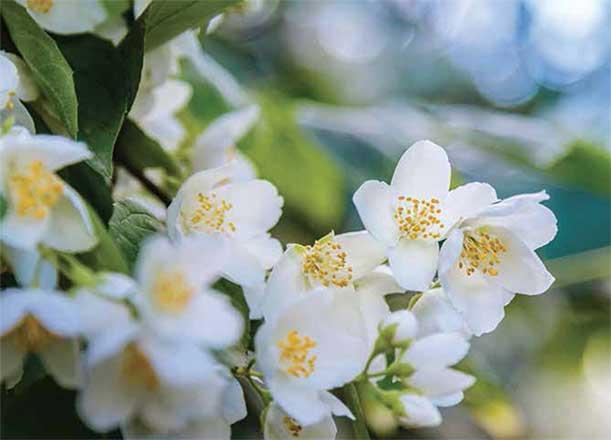- Mix
- Mon-2020-11-16 | 03:55 pm

Did you k now? This rare plant is popularly known as Parijat and Shefali in India and Yasmineh in Arabic. The name originates from the Persian word "Yasmin”, meaning the gift from God.
Flower facts
A native of South East Asia, Coral Jasmine comes in the form of a perennial shrub or a small tree that grows up to 10 metres tall in most tropical climatic regions of Asia. It blooms from August to December and is also known as the Night Queen. This tree reminds me of Amman where the Night Queen adorned the entrance to our home and also created an ornamental landscape to my home in North America. Unlike the tropics, they behave a little differently in North America as they don’t shed after blooming but remain in bloom for ten days then whither away in September, marking the end of summer.
Clinical complexity
You can use all parts of this plant for different purposes. The leaves and the flowers are often boiled with rice and consumed to gain resistance and boost immunity against seasonal ailments. It has proven to be effective against body pain, inflammation, seasonal flu-like malaria and the common cold. Since the leaves are bitter, they are boiled with a pinch of sugar. Extracts of the flowers, leaves and seeds are popularly used in Indian medicine for essential oils in treating arthritis and inflammation. The tree is known to have antioxidant properties and reduces radical damage due to ageing. Its calming effect works as a stress reliever and helps in the treatment of vertigo.
Cosmetic curiosity
The flowers are plucked from the tree during the night to make essential oils. A few drops of concentrated jasmine oil is diluted with other oils and used externally for aromatherapy. It also makes the best homemade facial mask for flawless glowing skin. A powerful antioxidant, it helps regenerate and rejuvenate the skin by clearing blemishes and tightening the skin pores reducing oiliness. It further helps in treating acne, blackheads as well as pimples.
Culinary contribution
In India, since it has myriad health benefits, coral Jasmine is used for creating culinary delicacies. The flowers are usually picked from the ground and washed in bulk during the blooming season then sun-dried. I often add them to my fish curries and traditional side dishes where I boil them with rice and season them with onions and chillies.
Reprinted with permission from Family Flavours magazine.











